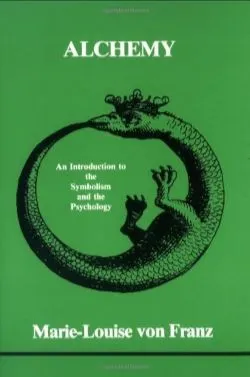
This book really wasn’t for me–I think that it’s best for readers to have solid grounding in Jung’s writings before trying to take on this set of lectures, because it’s far more about Jung than about alchemy. Alchemical symbolism is used as a jumping-off point to dive more deeply into Jung’s analytical psychology.
I came across this book through Liz Greene’s lecture on alchemy in Dynamics of the Unconscious. She has some really interesting coverage of alchemy there, according to the way she associates it with astrology and Jung’s thought. It wasn’t as comprehensive as I had hoped for, but she speaks highly of Marie-Louise von Franz’s book, and I thought I’d approach it.
I had previously also read The Secrets of Alchemy, which approaches alchemy a bit differently: as people experimenting with metallurgy and trying to make sense of the world around him. In his reading, although alchemists used esoteric symbolism, they were really just speaking about metals. He’s quite critical of those who frame alchemy as a way of understanding the soul. I think Principe’s view is misguided, as Hermetic thought really demands a spiritual component: “as above, so below,” and we are the below.
As a result, I thought that I’d be sympathetic to Marie-Louise von Franz’s work here. But, unfortunately, I had a hard time doing so. While I try to trust experts on things that I know little about, like alchemy, she just seemed to get basic facts about Islamic history wrong. For instance, she frames Shiʿism as the mystical “sect” of Islam. This isn’t true: Shiʿites are surely receptive to mysticism, perhaps–sometimes–more so than Sunnis, but this is a mischaracterization. There’s little mention of Sufism as an esoteric tradition, and all this attention gets placed on Shiʿism.
I’m sympathetic to this view–I really am! But that just isn’t what Shiʿism is. This is exacerbated by her discussion of the imam. She says somewhere in the text that each generation has an imam to guide the spiritual community. Perhaps that was the case at some point, but it no longer is. Under Twelver Shiʿism, for instance, the twelfth imam went into “occultation.” He’s still in the world, guiding spiritual believers, but he’s the same person as that of a thousand years ago.
All of this is a digression: it actually isn’t important to the text. But, seeing this sounded the alarm for me that von Franz might not really know what she’s talking about. It seems to me that she has a solid command of Jungian theory and practice, but it is being projected (or is this terminology too on the nose?) onto historical traditions that she has little empirical understanding of.
Even so, I learned a bit. I was especially curious about her discussion of Thomas Aquinas in the final third of the book, who–she argues–was flooded by the unconscious and had mystical experiences. At least, that’s my reading. It doesn’t seem that he went “crazy” by any means–it seems that he tapped into something real, and that’s fascinating.